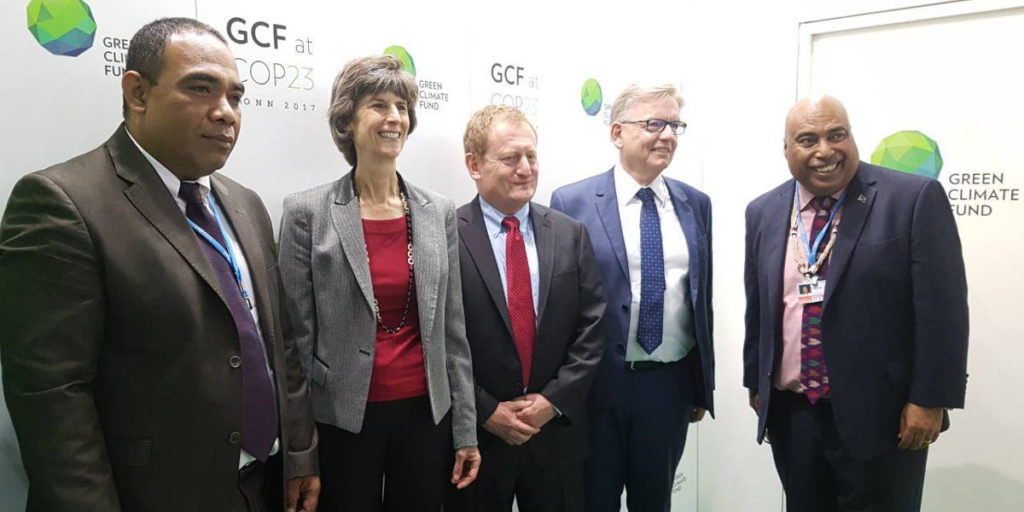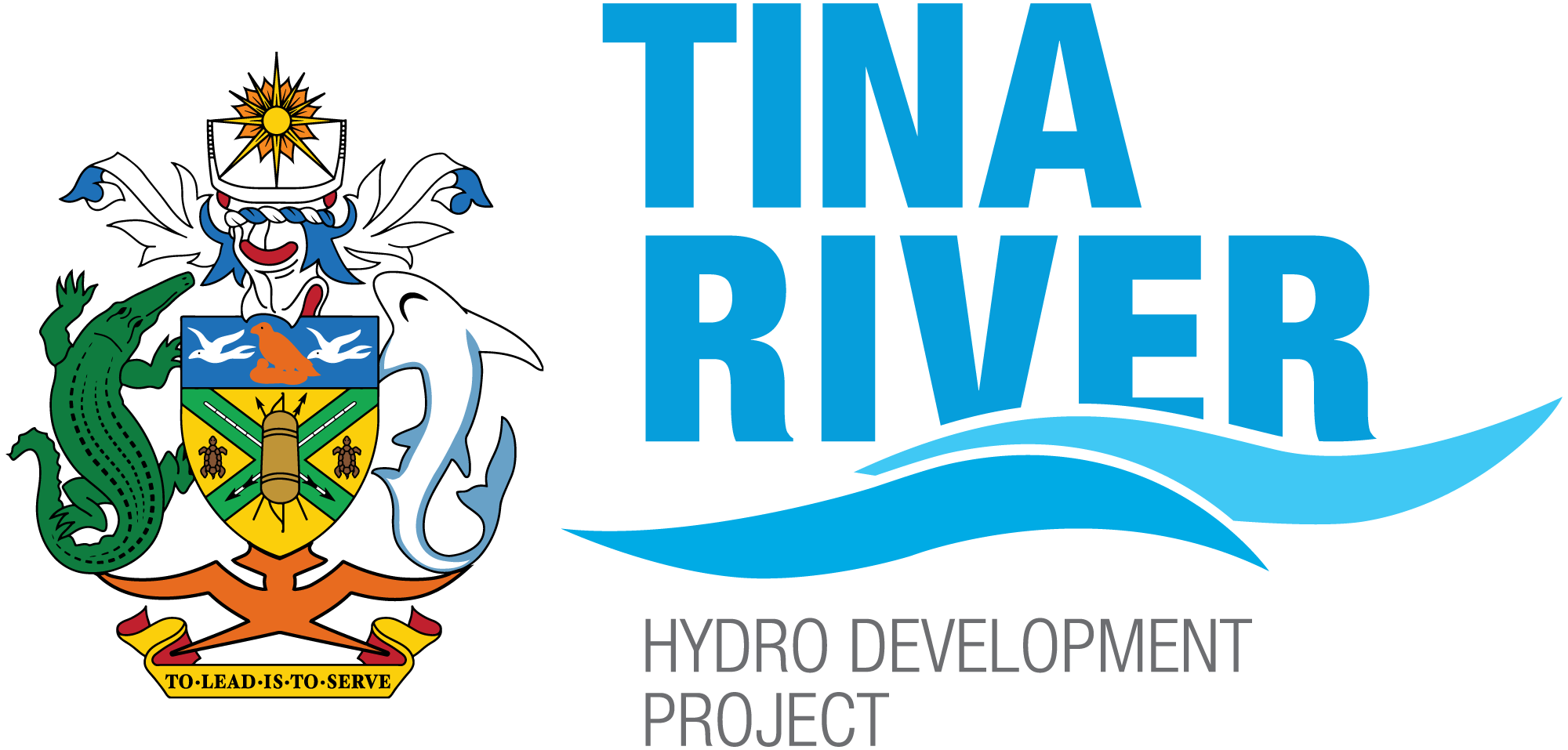
GREEN Climate Fund (GCF) will soon release USD$86 million (SBD$669,010,391.46) for the much-awaited Tina Hydro Project in central Guadalcanal.
This followed the signing of an Accreditation Master Agreement (AMA) between GCF and the World Bank, Monday, on the margins of the 23rd climate change summit currently underway in Bonn, Germany.
“The signing of the AMA opens the way for GCF to transfer its funding support to Tina Hydro Project in Solomon Islands.”
GCF Executive Director Howard Bamsey.
“The GCF and the World Bank share an understanding about the vital need to finance innovative infrastructure and clean technologies in developing countries to build a low-emissions and climate-resilient future,”
Mr Ramsey added. He stated the agreement will allow the two organisations to work together to support innovative ideas that reduce emissions and better prepare communities for the impact of climate change.
Tina Hydro is one of the World Bank’s GCF approved climate change projects. The other two are in Mali, Africa, and a cross-border initiative in Tajikistan and Uzbekistan.
Solomon Islands COP23 lead negotiator Collin Beck and Permanent Secretary Ministry of Environment, Climate Change, Disaster Management & Meteorology Dr Melchior Mataki were on hand to witness the signing.
The United Nations Framework Convention on Climate Change (UNFCCC) established the GCF in 2010 to deliver equal amounts of climate finance to mitigation and adaptation.
Mr Ramsey said the signing of the AMA opens the way for GCF to transfer its resources to these three projects, along with other climate initiatives the World Bank may propose in the future.
“The GCF and the World Bank share an understanding about the vital need to finance innovative infrastructure and clean technologies in developing countries to build a low-emissions and climate-resilient future.”
“I am confident there is plenty of scope for us to work together in building the resilience of vulnerable communities, and to find paradigm-shifting solutions by bringing the public and private sectors together.”
World Bank CEO Kristalina Georgieva said GCF is “an important funding mechanism that countries are counting on to support their Paris commitments.”
“We are pleased that our projects can now move forward as a result of this agreement.”
Mrs Georgieva said.
“Demand from our clients for financing climate action is huge, and we look forward to bringing the strongest possible proposals to the GCF for consideration.”
GCF approved the USD$86 million funding in April this year during its board meeting at its headquarters in Seoul, South Korea.
Of the GCF funding, USD$70 million (SBD$544,544,160.48) is a low-interest loan towards the cost of building the hydropower facility, while USD$16 million (SBD$124,465,480.22) is grant contribution for the construction of the key access road that will link the powerhouse and the hydropower facility to Honiara.
Tina River Hydro is touted as the country’s first large-scale sustainable energy project and will lead national efforts to diversify electricity generation in favour of clean, renewable sources such as hydro and solar power.
The project has the potential to more than double the country’s annual greenhouse gas reduction target and has the largest greenhouse gas reduction potential of any planned energy project in Solomon Islands.
At USD0.81 per kWh Solomon Islands’ retail electricity cost is one of the highest in the world. The country has for decades relied on extremely expensive imported diesel fuel for power generation.
Diesel Power generation is also subject to international oil prices and can be unpredictable for a small country like us.
The extremely high costs of electricity, combined with unpredictable international oil prices is one of the country’s key development challenges and this can be mitigated by utilizing indigenous resources such as the Tina Hydro.
GCF is the second development partner to provide funding support for Tina River Hydro. The first was the International Renewable Energy Agency/Abu Dhabi Fund for Development (IRENA/ADFD) facility, which approved USD$15 million (SBD$116,685,654.12) for the project earlier this year.
Work on the project is scheduled to start next year.
By OFANI EREMAE
from Bonn, Germany
Photo: From left: Permanent Secretary Ministry of Environment, Climate Change, Disaster Management & Meteorology Dr Melchior Mataki, World Bank CEO Kristalina Georgieva, GCF Co-chair Ewen McDonald, GCF Executive Director Howard Bamsey, and Solomon Islands COP23 lead negotiator Collin Beck
